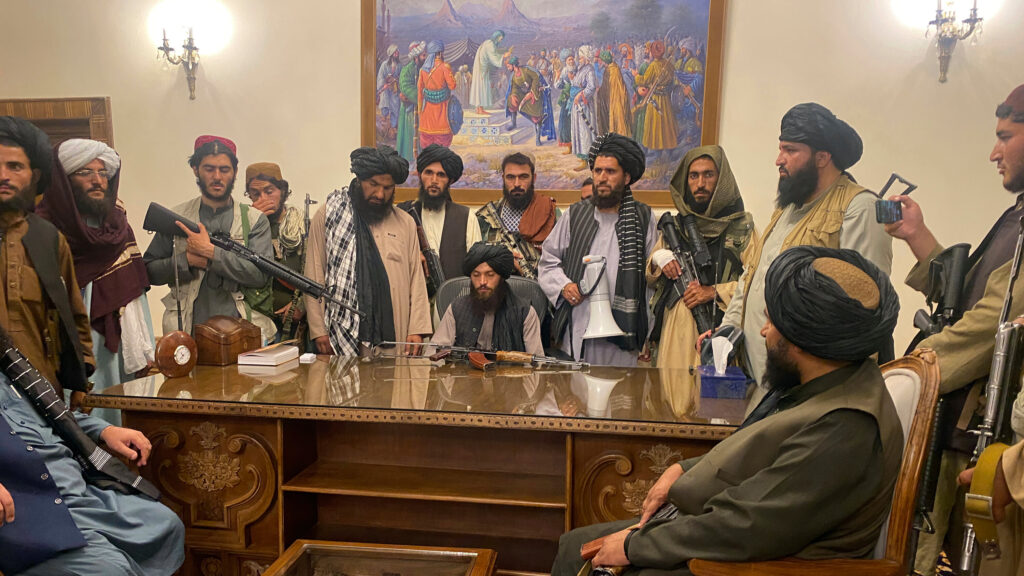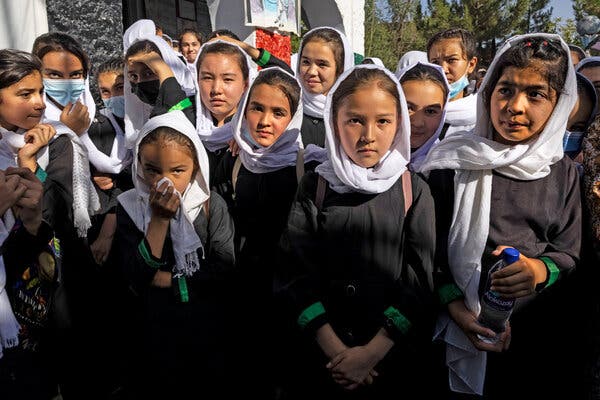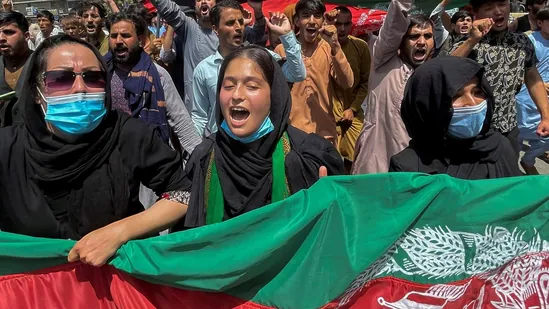
I have been trying to understand the Afghanistan issue to undertake a more balanced moral evaluation on the rights and wrongs of the policies, actions and reactions of the various internal and external parties to the conflict.
On the one hand, what happened in Afghanistan in 2001 was not about a classic case of outside intervention, the ousting of a legitimate government and foreign occupation. If it were such, and the Taliban were a legitimate government, then those who supported the Americans, and their allies to occupy the country would indeed be traitors. And some of them would be directly guilty of passing on intelligence that caused the loss of many innocent lives of Afghan civilians through aircraft and drone bombings.
The Taliban in the late 1990s, when they seized power, took it by force. Subsequently, they became a brutal dictatorship that imposed unacceptable restrictions on people, especially with respect to girls and women. Banning girls from having an education and restricting women from working were both abominable things that the Taliban did when they were in power.


But the West, led by America and NATO, went into Afghanistan in 2001, in response to the Al Qaeda Bombing of the World Trade Centre in New York, to oust the Taliban from power, destroy the Al Qaida and create a new democratic Afghanistan. In addition to ‘clearing terrorists from Afghanistan and denying a base for terrorism to flourish’, their stated aims included nation-build along the lines of what America achieved in Japan and South Korea. But it was clear from the beginning that the West lead by America was trying to achieve more than just their stated aims.
In 1991, not long after the Soviet defeat and their withdrawal from Afghanistan, America, with its allies, went to war in Iraq to oust Saddam Hussain from Kuwait. It was clear from that war that America had additional aims than just to remove Saddam Hussain from Kuwait. They wanted to test the new advanced weaponry that they were developing in real battle situations and demonstrate their overwhelming firepower superiority to the world so that no one ever thinks of challenging America and frighten everyone to accept their total domination and believe that it would be perpetual.
Soon after the first Gulf War had ended in early 1991, the communist Soviet Union, on seeing the power of America and the capitalist west, began to disintegrate by the end of the same year. I believe, by the invasion of Afghanistan in 2001, and within a few years invading Iraq and threatening to regime change in Iran, America and the West were trying to show the world what their powers and capabilities were – their ability to simultaneously engage in several wars, invade and take over large countries quickly and swiftly, regime change, hold and change the countries invaded were designed to demonstrate that America’s power was too overwhelming and too far ahead for anyone to challenge.
The early success in the Afghan and Iraq wars were designed to usher in a long period of total American domination of the world – the 21s Century was going to be America’s century.
Creating opportunities for girls’ education in Afghanistan, women working and promoting democracy were soft power designed to justify and gain support for the invaders’ strategic goals of world domination. But those people who were suffering from Taliban brutality saw the American invasion as an opportunity to become free and rebuild their country in a more modern way. Except for a few individuals that collaborated with the Americans and gave them information that caused the killings of civilians, all others that engaged in nation-building, developing themselves and their families through education and economic activities were innocent, and they have every right to fear the Taliban, even in the face of the Taliban assurances and amnesty.
One reason for this is that they fear similar brutality from the Taliban as what happened during their first period of rule. Second, some of the restrictions that the Taliban will introduce, will become unbearable for many individuals, especially for girls and women, although the vast majority of the Afghan people may, more or less, acquiesce with the Taliban restrictions as they will be in line with how traditional Afghan societies lived for a long time.
What does the defeat of America and the West mean for the world? On the one hand, the defeat of America and the West in Afghanistan does not mean, in terms of actual physical strength and power, that the Americans and the West have become weak or weaker. But on the other hand, the ability to exercise their overwhelming superior power has become weaker and relatively weak. Also, their overwhelming superiority in firepower itself has become relatively weak or relatively weaker.
America’s deluded self-belief that it has acquired ‘God-like’ power on Earth, which gave them the confidence to invade weak countries like Afghanistan and Iraq, has been shattered. They no longer are able to feel God-like, in terms of power and a sense of invincibility. Through the effective resistance against America and the West, Afghans and Iraqis have demonstrated how to resist ‘God-like’ powers on Earth and defeat them. The valuable lessons won’t be unlearnt around the world. On top of that, there has been a rise of China, which is becoming unstoppable – it means that America’s powers and influence, and their western and eastern allies, will continue to decline relatively. The levels of respect for and fear of America and the West that the world showed for many years must necessarily and, as such, decline.
Western misguided efforts to create a small group of westernised Afghans that were opposed to by the vast majority of their country people were going to create massive problems for the Afghan people to deal with in the long run. Why didn’t the Afghan Army and the security forces fight the Taliban? It was simple. They didn’t have the heart and the stomach to fight, as they did not have clear aims and leadership to inspire them to fight for a purposeful cause. This must be due to the way the West created the Afghan Army, the command structure, the values instilled, the puppet-and-dependent-like way they must have been treated, separated from the population at large who saw them as the collaborators of the invaders – and many other reasons.
In terms of my moral evaluation of the overall situation – policies and actions of the different parties – the main conclusion that I can come to, which have been my position for a very long time, is that foreign interventions are the roots of most evils experienced by countries that are invaded, especially when the invaders have an ideological motive rather than humanitarian reasons. Only in a very limited number of latter cases can outside intervention ever be justified, which may do some good.
Now, let Afghans deal with the aftermath of their long continuous wars since 1979 without any foreign interventions. It will be a long time, including many bloody internal struggles, before the Afghan people will find a way to resolve their differences and issues. Let them began the process. We can and should suggest ideas for solutions and offer practical help, but never support foreign invaders to wreak havoc again in Afghanistan.